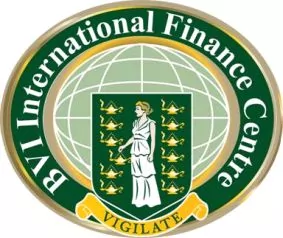Article by Ayana Brathwaite, Maples and Calder, British Virgin Islands
Since the British Virgin Islands ("BVI") invested in a decision to upgrade its corporate framework through the introduction of the Mutual Funds Act, 1996, the Insolvency Act, 2003, and the BVI Business Companies Act, 2004, it has become one of the most popular jurisdictions for corporate transactional work as well as for the incorporation of companies and funds. There are more than 500,000 active companies and nearly 2,000 active professional funds domiciled in the BVI. This article looks at the advantages that the BVI offers to investors, and also highlights some new developments.
The BVI Mutual Funds Act, 1996 allows for three categories of funds (professional, private and public) to be established, whilst providing for investor protection commensurate with their level of sophistication. There are currently no regulatory restrictions on investment policies in the BVI. The mutual funds legislation is not complex and, as a result, funds can be established in the BVI by using simple and cost-effective structures. Professional funds can receive fast-track approval from the BVI Financial Services Commission ("FSC") from within three to five days of submission of an application for recognition. Most fund entities are structured as limited liability companies although partnership structures are also being formed, especially where the client has a limited partnership onshore and is seeking to mirror the structure offshore. The BVI is now also a member of IOSCO, further enhancing its attractiveness particularly to clients from emerging market jurisdictions. There is no requirement in the BVI for service providers of a BVI fund such as the manager, administrator or custodian to be resident in the BVI. However, several international service providers are present in the BVI to provide services locally.
The BVI Business Companies Act, 2004 (the "Act") has received positive reviews from legal practitioners for its flexibility. Five different types of companies can be incorporated under the Act. In particular, many investors welcomed the introduction of segregated portfolio companies (SPCs), as these allow umbrella funds to be set up with limited liability between share classes (which was not permitted under the former regime) thus avoiding potential cross-class liability issues. The Act also includes statutory merger and consolidation provisions, which make it possible for two entities (only one of which need be a BVI entity provided certain conditions exist), to merge with all the assets of both entities consolidated into the surviving entity. This has made the BVI more attractive for joint venture vehicles and for the restructuring of companies and funds. BVI companies can also list on worldwide stock exchanges including LSE, AIM, NYSE, NASDAQ, ISE, TSX and BOVESPA.
The implementation of the Financial Services (Exemptions) Regulations in August 2007 has clarified the circumstances under which a BVI private trust company must be licensed. The PTC legislation, together with the continued popularity of BVI VISTA trusts, ensure that the BVI is able to provide a full suite of trust structures to suit international demand.
In 2008, the FSC issued the Anti-Money Laundering and Terrorist Financing Code of Practice together with the Anti-Money Laundering Regulations. These replace the previous anti-money laundering code and guidance notes first issued in 1999. The new regulations have been introduced to ensure the BVI keeps in step with the changing global environment and international anti-money laundering standards, thereby protecting its standing as a well-regulated international financial centre.
The FSC recently replaced the annual mutual funds survey with an annual return in order to assist with the collection of statistics and to provide a fuller understanding of the industry it regulates. Annual reporting by mutual funds will become mandatory in 2009. Funds will be expected to provide information on NAVs, total subscriptions and redemptions, increases or decreases in net assets, dividends, distributions and year-end gross assets within a specific reporting period. This regime is similar to those already in place in other offshore jurisdictions including the Cayman Islands, Jersey and Guernsey and demonstrates the BVI's commitment to adhering to best practices and high standards of prudence.
Further efforts to bolster the BVI as a top tier financial services centre include the addition of a commercial court, which is currently under construction. The BVI will then become the headquarters of the Eastern Caribbean Supreme Court's commercial court. Many investors already take comfort from the fact that the BVI has a legal and judicial system based on English common law principles, with ultimate appeal to the Privy Council in England.
The BVI legislators continue to work diligently to ensure that the legal and regulatory framework remains flexible whilst meeting international standards. In the current economic climate, the BVI's proven judicial system and creditor-friendly insolvency legislation will be of increased importance to investors.
The content of this article is intended to provide a general guide to the subject matter. Specialist advice should be sought about your specific circumstances.
